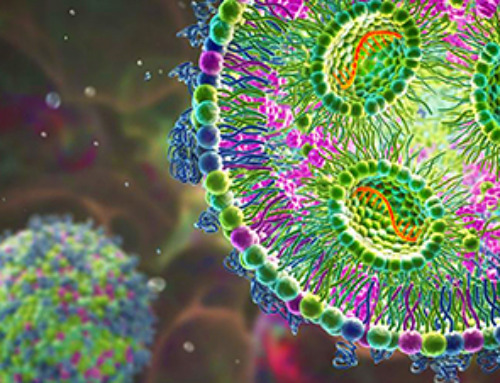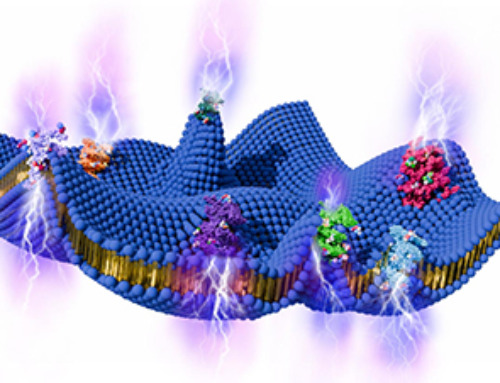Imagine being a patient in the early 19th century, when all ailments were considered “humors” to be ejected from the body. To restore balance, various techniques such as diets, natural herbs, or bloodletting with leeches were used – the only “technology” available at the time.
Even when the basic structure of modern medicine came into place, the average life expectancy was just 34 years old in 1913. A patient from that era would surely be amazed by the leaps and bounds that healthcare has undergone since then, thanks to the influence of technology.
The Healthtech Revolution
Today’s infographic dives into some of the technological advances that are pushing the boundaries of modern healthcare, and what this could mean for the sector.
What is Healthtech?
Healthcare technology, or healthtech, is the use of technology to better treat patients. Many such inventions have been credited for saving countless human lives since the 1800s.
Medicines, devices, procedures, and even organizational systems contribute to expanding life expectancy and improvements in quality of life.
From Fiction to Reality
Breakthroughs such as robotic arms, 3D bio-printed organs, and virtual reality for pain relief are being developed in the medical sector, drawing influences from the big screen.
Technologies that were once the staple of science fiction movies are rapidly becoming realities.
— Jeroen Tas, Chief Innovation Officer, Philips
But there’s a less tactile application of technology from science fiction that will arguably have an even bigger impact on healthcare: artificial intelligence (AI).
By recognizing patterns in behavior and creating their own logic, machine learning algorithms are set to transform various aspects of healthcare ranging from the automation of mundane tasks to the creation of entirely new drugs.
Healthcare at our Fingertips
Healthcare is also getting more mobile and connected, putting the Internet of Things (IoT) and mobile health (mHealth) at center stage as sources of potential disruption.
These technologies can help in everything from offering patients a convenient way to book appointments and pay bills online, to allowing doctors to use electronic health records to access and share information.
Wearable devices and smartphone apps are spiking in adoption as they unlock the option to monitor and manage individual health anytime, anywhere. This is creating an explosion in personal health data, which consumers are willing to share with their doctor if it will benefit them or others.
The Coming Healthtech Boom
Artificial intelligence, IoT, and mHealth are contributing to rapidly expanding healthtech sector, and each are expected to experience rapid growth by 2025:
| Healthcare segment | Current* | Projected (2025E) | CAGR |
|---|---|---|---|
| Artificial Intelligence | $2.1 billion | $36.1 billion | 50.2% |
| Global IoT | $120.2 billion | $543.3 billion | 20.2% |
| Global mHealth | $4.16 billion | $111.8 billion | 44.2% |
*2018E for AI, 2017 for IoT, 2016 for mHealth.
While healthtech won’t replace your doctor anytime soon, but it will certainly change your experience with healthcare – both on the front-end and behind the scenes.
News This Week
Nanomedicine in 2026: Experts Predict the Year Ahead
Progress in nanomedicine is almost as fast as the science is small. Over the last year, we've seen an abundance of headlines covering medical R&D at the nanoscale: polymer-coated nanoparticles targeting ovarian cancer, Albumin recruiting nanoparticles for [...]
Lipid nanoparticles could unlock access for millions of autoimmune patients
Capstan Therapeutics scientists demonstrate that lipid nanoparticles can engineer CAR T cells within the body without laboratory cell manufacturing and ex vivo expansion. The method using targeted lipid nanoparticles (tLNPs) is designed to deliver [...]
The Brain’s Strange Way of Computing Could Explain Consciousness
Consciousness may emerge not from code, but from the way living brains physically compute. Discussions about consciousness often stall between two deeply rooted viewpoints. One is computational functionalism, which holds that cognition can be [...]
First breathing ‘lung-on-chip’ developed using genetically identical cells
Researchers at the Francis Crick Institute and AlveoliX have developed the first human lung-on-chip model using stem cells taken from only one person. These chips simulate breathing motions and lung disease in an individual, [...]
Cell Membranes May Act Like Tiny Power Generators
Living cells may generate electricity through the natural motion of their membranes. These fast electrical signals could play a role in how cells communicate and sense their surroundings. Scientists have proposed a new theoretical [...]
This Viral RNA Structure Could Lead to a Universal Antiviral Drug
Researchers identify a shared RNA-protein interaction that could lead to broad-spectrum antiviral treatments for enteroviruses. A new study from the University of Maryland, Baltimore County (UMBC), published in Nature Communications, explains how enteroviruses begin reproducing [...]
New study suggests a way to rejuvenate the immune system
Stimulating the liver to produce some of the signals of the thymus can reverse age-related declines in T-cell populations and enhance response to vaccination. As people age, their immune system function declines. T cell [...]
Nerve Damage Can Disrupt Immunity Across the Entire Body
A single nerve injury can quietly reshape the immune system across the entire body. Preclinical research from McGill University suggests that nerve injuries may lead to long-lasting changes in the immune system, and these [...]
Fake Science Is Growing Faster Than Legitimate Research, New Study Warns
New research reveals organized networks linking paper mills, intermediaries, and compromised academic journals Organized scientific fraud is becoming increasingly common, ranging from fabricated research to the buying and selling of authorship and citations, according [...]
Scientists Unlock a New Way to Hear the Brain’s Hidden Language
Scientists can finally hear the brain’s quietest messages—unlocking the hidden code behind how neurons think, decide, and remember. Scientists have created a new protein that can capture the incoming chemical signals received by brain [...]
Does being infected or vaccinated first influence COVID-19 immunity?
A new study analyzing the immune response to COVID-19 in a Catalan cohort of health workers sheds light on an important question: does it matter whether a person was first infected or first vaccinated? [...]
We May Never Know if AI Is Conscious, Says Cambridge Philosopher
As claims about conscious AI grow louder, a Cambridge philosopher argues that we lack the evidence to know whether machines can truly be conscious, let alone morally significant. A philosopher at the University of [...]
AI Helped Scientists Stop a Virus With One Tiny Change
Using AI, researchers identified one tiny molecular interaction that viruses need to infect cells. Disrupting it stopped the virus before infection could begin. Washington State University scientists have uncovered a method to interfere with a key [...]
Deadly Hospital Fungus May Finally Have a Weakness
A deadly, drug-resistant hospital fungus may finally have a weakness—and scientists think they’ve found it. Researchers have identified a genetic process that could open the door to new treatments for a dangerous fungal infection [...]
Fever-Proof Bird Flu Variant Could Fuel the Next Pandemic
Bird flu viruses present a significant risk to humans because they can continue replicating at temperatures higher than a typical fever. Fever is one of the body’s main tools for slowing or stopping viral [...]
What could the future of nanoscience look like?
Society has a lot to thank for nanoscience. From improved health monitoring to reducing the size of electronics, scientists’ ability to delve deeper and better understand chemistry at the nanoscale has opened up numerous [...]






















Leave A Comment